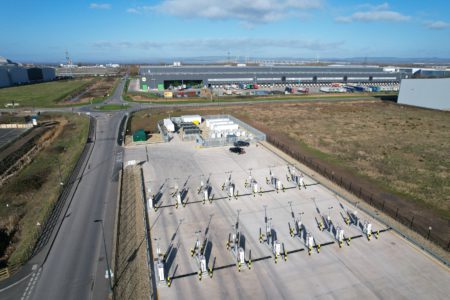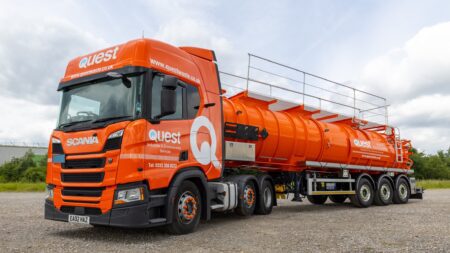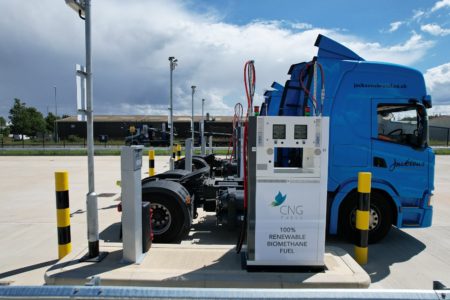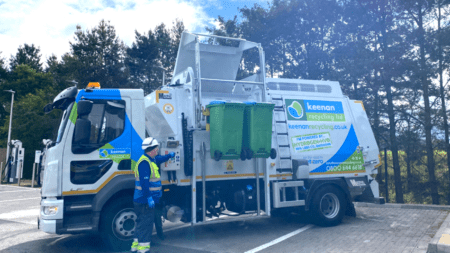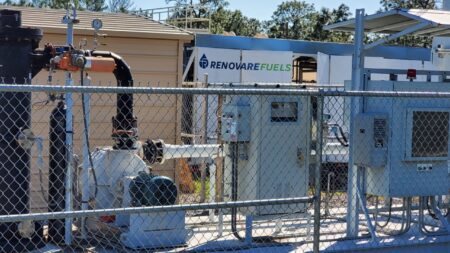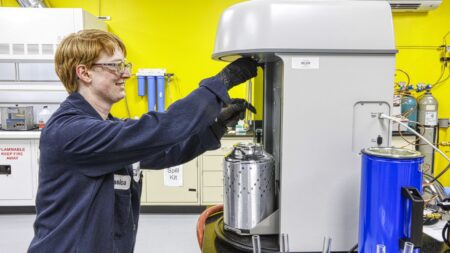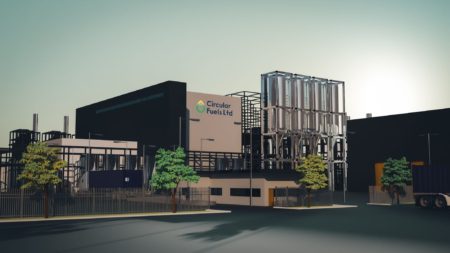search | waste-oils
ReFuels, one of Europe’s largest suppliers of renewable biomethane from food waste for heavy goods vehicles, today announces its plans to publicly list, valued at GBP £120 million. Applying to...
...Manufactured by Yorkshire based RTN Clayton Vallely, the tank is made from 316 stainless steel with a 5mm shell is suitable for Waste ADR products classified under tank material compatibility...
...UK to co-process waste oils to produce renewable fuels and now we will be the first to produce SAF at scale, and we are delighted British Airways is our first...
...immediate reduction in carbon emissions of 88%. The low-carbon fuel, made from certified waste fats and oils, can be used to replace conventional heating oil and has been classified as...
...appetite for ICEs may seek alternative routes. The brand behind the research is SUSTAIN. Created by bespoke fuel specialist Coryton, SUSTAIN uses advanced second-generation biofuel manufactured from agricultural waste, such...
...with Yodel in commercial roles followed by roles at a variety of other business including Bunzl and Biffa Waste Management. “Having always worked in the service delivery and logistics industries,...
...develop up to five facilities to produce the biofuels and biofuel components and will convert forestry and wood-based construction waste into lower-emissions biofuels and biofuel components. It is anticipated that...
...feedstocks for UK SAF projects are municipal waste and waste biomass, which use no farmland. Is SAF is the future for aviation? Are there are viable alternatives? SAF alone will...
...a more complete burn of the fuel, converting current waste particulate matter into useful energy while lowering emissions. Most ‘traditional’ fuel additives are made from waste distillates and solvents, which...
...highlighted that ensuring the sustainability of the fuels through their production pathways and integrity of the waste-based feedstocks is vital noting that “All biomethane and HVO supplied to UK truck...
Keenan Recycling, a provider of sustainable waste management solutions, has announced that its baseline greenhouse gas emissions inventory has been formally verified against the internationally recognised ISO 14064-1 standard by...
...approximately 120 Waitrose heavy goods trucks, the vehicles will run on biomethane made from food waste and waste materials rather than diesel. This will reduce CO2 emissions by 80%, with...
...in EVs. “Humber Refinery was also the first UK refinery to make renewable fuel from waste oil and we remain at the forefront of research and development into next-generation, cleaner...
...million litres of advanced renewable biofuels produced each year, made from the biogas produced by landfill waste. A first for the UK The Craigmore, County Derry plant is a...
...platform provide a scalable, flexible solution particularly suitable for projects that produce SAF. Velocys’ Fischer-Tropsch technology is compatible with multiple project types employing diverse feedstocks, including municipal solid waste, woody...
...household waste into sustainable aviation fuel (SAF) for use by airlines operating at UK airports. The £600m project involves Essar Oil UK, Fulcrum BioEnergy and Essar’s subsidiary company Stanlow Terminals...
...existing operational facility, KEW’s Sustainable Energy Centre (SEC), and RenFuD’s syngas-to-DME synthesis technology. Feedstock for the plant will come from household and commercial sources. The non-recyclable waste will go through...
...for the storage, transfer and distribution of industrial liquids, gases and waste. Its highly specialised services cover; additive and blending, fluid transfer, access solutions, storage tank equipment, and vapour recovery....
